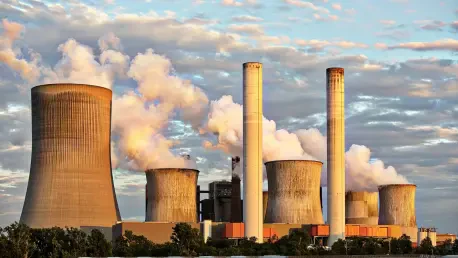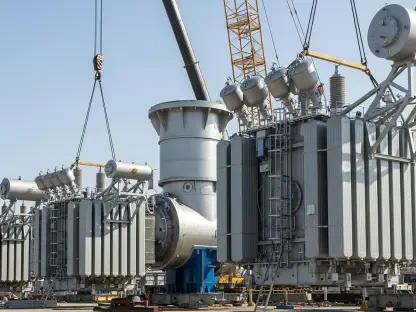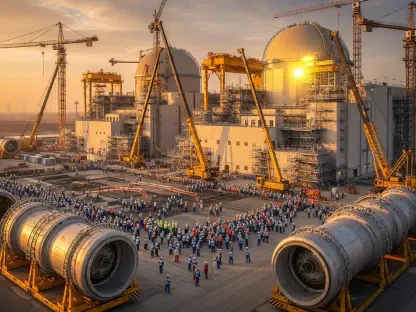In a stunning development that has sent shockwaves through the international community, Iran’s Intelligence Ministry has claimed to have successfully infiltrated the highly guarded nuclear secrets of Israel, a nation long suspected of possessing an unacknowledged nuclear arsenal. This bold assertion, aired through state television, comes at a time of heightened tensions between the two regional adversaries, where covert operations and espionage have become almost routine in their ongoing conflict. The claims, if substantiated, could significantly alter the geopolitical landscape, raising serious questions about the security of sensitive nuclear programs and the potential ramifications for global non-proliferation efforts. Iran’s allegations include the acquisition of detailed records about key personnel and international collaborations, painting a picture of vulnerability in Israel’s secretive atomic initiatives. This revelation not only intensifies the rivalry but also draws attention to the broader implications of such intelligence breaches in an already volatile region.
Unveiling Alleged Nuclear Vulnerabilities
Iran’s recent broadcast on state television featured Intelligence Minister Esmaeil Khatib presenting what was described as concrete evidence of a major security breach within Israel’s nuclear framework. The minister claimed that Iran now possesses sensitive data on 189 scientists and top officials linked to Israel’s atomic program, including personal details and professional networks. Specific references were made to critical facilities like the Dimona site, long rumored to be the heart of Israel’s nuclear activities. Khatib went so far as to address Israeli Prime Minister Benjamin Netanyahu directly, alleging that some Israeli employees have been cooperating with Iran for financial incentives and continue to do so. This public disclosure of supposed insider collaboration adds a layer of complexity to the narrative, suggesting internal weaknesses that could undermine Israel’s stringent security measures. While Israel maintains its policy of silence on nuclear matters, the gravity of these accusations cannot be easily dismissed in the context of persistent regional hostility.
Further details provided during the broadcast highlighted specific individuals allegedly involved in Israel’s nuclear operations, intensifying the personal stakes of this espionage saga. Iran named an individual connected to seven nuclear sites under a company called ROTEM, as well as another tied to proliferation projects reportedly involving the United States. Additionally, the Chaim Weizmann laboratory was singled out as a pivotal center for Israel’s nuclear research, with Iran claiming to have targeted it with ballistic missiles during a recent conflict. This military action, paired with the intelligence revelations, underscores Iran’s apparent strategy to not only expose but also actively disrupt Israel’s nuclear capabilities. The lack of independent verification for these claims leaves room for skepticism, yet the detailed nature of the information presented—down to specific names and locations—raises pressing concerns about the potential accuracy of Iran’s assertions and the security protocols safeguarding such critical programs.
International Connections and Broader Implications
Beyond the immediate focus on Israel’s domestic nuclear infrastructure, Iran’s claims extend to alleged international collaborations that could have far-reaching consequences. A notable accusation involves a project named SARAF, purportedly a joint initiative with France, suggesting that Israel’s nuclear activities may involve proliferation efforts beyond its borders. This revelation, if true, could strain diplomatic relations with other nations and complicate global efforts to curb the spread of nuclear technology. Iran’s decision to publicize such connections appears calculated to portray Israel as a rogue actor in the international arena, potentially inviting scrutiny from bodies like the International Atomic Energy Agency (IAEA). The intertwining of geopolitical rivalries with nuclear security issues highlights the delicate balance of power in the region, where accusations of this nature can escalate tensions not just bilaterally but on a global scale.
Adding a provocative twist to the narrative, Iran’s broadcast included personal images of Rafael Grossi, the Director General of the IAEA, presented as evidence of Israel’s extensive surveillance capabilities. These images, ranging from family events to casual outings, were disseminated through public channels, injecting a deeply personal element into an already charged geopolitical dispute. This move seems designed to question the privacy and security of international figures involved in nuclear oversight, potentially undermining trust in global monitoring mechanisms. While the veracity of Iran’s broader claims remains unconfirmed, the targeting of a high-profile individual like Grossi suggests an intent to widen the scope of the conflict, drawing in international stakeholders and amplifying the stakes. The mutual hostility between Iran and Israel, evidenced by recent conflicts and counter-espionage arrests, forms a backdrop of persistent vulnerabilities on both sides, further complicating the path to regional stability.
Reflecting on a Persistent Regional Standoff
Looking back, the audacious claims made by Iran about penetrating Israel’s nuclear secrets marked a significant escalation in the covert warfare that defined much of their rivalry. The public airing of detailed allegations, from personnel data to international ties, was a bold maneuver aimed at discrediting Israel on the world stage. Even as the authenticity of the information remained under scrutiny, the very act of broadcasting such claims through state media underscored the depth of animosity and the lengths to which both nations went to gain an upper hand. The personal targeting of figures like the IAEA’s Director General added a troubling dimension, hinting at the potential for broader international fallout from what was once a more contained bilateral feud. Moving forward, the international community might consider stronger oversight mechanisms and diplomatic channels to address the risks posed by such intelligence disclosures. Enhanced cooperation on nuclear security and transparent dialogue could serve as vital steps to prevent further destabilization in an already tense region.









